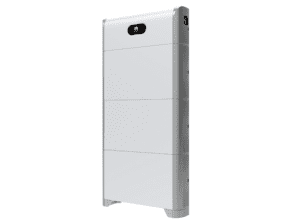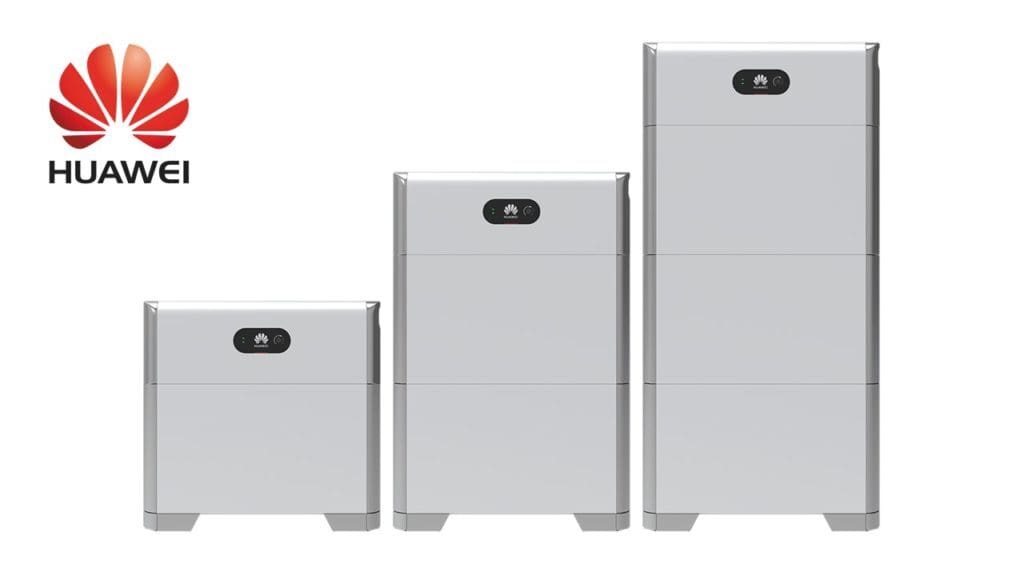Please note that Solar Choice has no affiliation to any battery manufacturer and our reviews are independently written.
Background on Huawei – Company history
Huawei Technologies Co., Ltd. is a Chinese technology company with headquarters in Shenzhen, Guangdong. The company, initially founded in 1987, is most well-known for the production and sale of telecommunications equipment and consumer electronics product lines. In 2012, they overtook Ericsson as the largest telecommunications manufacturer in the world and overtook Apple in 2018 as the second-largest manufacturer of smartphones behind Samsung.
Huawei and ZTE were banned from supplying the technology into Australia’s 5G network due to Australian Government’s concerns about unauthorised access or interference. In 2019, amid rising tensions between the Trump administration and China, Huawei ceased selling to the U.S. market and laid off all U.S. staff. in December 2019. The founder of Huawei, Ren Zhengfei, said it was moving their operation to Canada because the restrictions would block them from interacting with US employees.
In 2021 Huawei has entered the residential solar battery market with their Luna2000 battery. The battery’s lithium-iron phosphate cells have a modular design and can be scaled from 5kWh to 30kWh. Huawei are hoping to capitalise on the rapidly growing market for batteries with the combination of increasing state-based government subsidies, lowering solar export prices and the emergence of virtual power plant programs which create an additional revenue source for system owners.
Huawei currently has over 114,000 employees in about 170 different countries. Total revenue in 2023 was reported as US$98.5 billion.
Basics of the Huawei Luna2000
The Luna2000 battery is made up of stackable 5kWh modules that weigh 50kg each. You can connect 3 modules together to create a 15kWh battery and connect two of those together in parallel to reach a maximum possible capacity of 30kWh. Each module is rated to output power up to 2.5kW.
The batteries are installed upright either against a wall or sitting on the ground. With a IP66 water and dust resistance rating the battery is fine to be installed indoors or outdoors although the warranty document says that the recommended working temperature for the battery is 15 to 30℃.
The Huawei Luna2000 can be connected to single-phase or three-phase hybrid inverters, so it suitable for solar system owners with a battery ready set up. The battery utilises Lithium-Iron Phosphate (LiFePO4) chemistry which is commonly used by other battery manufacturers.
Huawei Luna2000 battery – Key features
There are a number of features of the Huawei’s new battery worth mentioning:
Modular design with energy optimisation
Like many battery solutions on the market Huawei have opted for a modular design for their batteries – this enables greater scale in production and more flexibility for consumers. One challenge for consumers is that if they purchase one module to begin with and an additional module later down the track, then the newer module will be dragged down to the lower performance of the older battery. Similar to how panel optimisers work, Huawei have included ‘Smart String’ technology which will enable customers to add modules whilst keeping the better efficiency of the newer battery module.
100% Depth of Discharge
Similar to the Tesla Powerwall 2 the depth of discharge on the Huawei Luna2000 is 100%. This means a greater percentage of the batteries capacity is usable than most of Huawei’s competitors such as LG Chem (95% depth of discharge), Sonnen (90% depth of discharge) and Alpha ESS (90% depth of discharge)
Back Up Power
With the inclusion of their back up box, Huawei’s battery can provide power during a black out with an output up to 5kW on single phase and 3.3kW on three phase. With a number of recent grid outages across Australian this has become an important consideration for buyers of solar batteries.
How much do Huawei batteries cost?
See the below table which provides an indicative guide based on data from Solar Choice’s Battery Price Index on the cost of installing a Huawei Luna2000 with different battery capacity:
| Huawei LUNA2000 Solar Battery | Wholesale Price ($AUD) |
| 5kW (1 module) | $3,995 |
| 10kW (2 modules) | $6,390 |
| 15kW (3 modules) | $8,790 |
Please note
- Prices are recommended wholesalers listed price and including back up box – final price a customer would be quoted depend on the installer’s mark up and installation costs
- Price estimates does not include any state-based incentives
To give this cost context it is important to balance the cost of a battery against the return of a cheaper power bill. Solar Choice’s solar and battery calculator is a comprehensive tool to understand the financial viability – although be warned, we looked at 48 scenarios and couldn’t find anything that made financial sense.
Compare quotes from up to 7 installers in your area now.
Australian warranty terms for Huawei Luna2000 battery
Like most battery solutions in Australia Huawei offer a 10 year warranty for their battery. For each 5kWh module there is a life cycle power discharge of 16.45MWh stated in the warranty document with an estimated 60% capacity at end of life. The battery will end its warranty period when after 10 years, or if the power discharged equals 16.45MWh (whichever comes first).
The warranty document states that the battery must be installed within 1 month of the battery being purchased. You can ask your installer for evidence of when they purchased the battery to ensure your warranty is valid.
The battery backup box has a warranty period of 24 months.
As with their solar inverter modules, warranty can be claimed through their Australian office based in Chatswood, NSW which can be reached on 1300 482 934.
Review Huawei’s warranty document here.
LUNA2000-5/10/15-S0 specifications
| Usable Capacity | 5kWh | 10kWh | 15kWh | |||
| System Nominal Voltage (AC) |
450V | |||||
| Max. Output Power | 2.5 kW | 5 kW | 5 kW | |||
| Nominal voltage (single phase system) | 450 V | |||||
| Operating voltage range (single phase system) | 350 – 560V | |||||
| Nominal voltage (three phase system) | 600 V | |||||
| Operating voltage range (three phase system) | 600 – 980 V | |||||
| Battery Cell Technology | Lithium Iron Phosphate (LiFePO4) | |||||
| Dimensions (H x W x D) |
670 * 150 * 600 mm |
670 * 150 * 960 mm |
670 * 150 * 1320 mm | |||
| Weight | 63.8kg | 113.8kg | 163.8kg | |||
| Operating Temperature Range | -20 °C to 55 °C | |||||
| Outdoor/Indoor | IP66 | |||||
| Warranty | 10 Years | |||||
Pros and Cons of Huawei Battery
Pros:
- Large multinational company with local Australian office
- 100% depth of discharge
- Built in blackout protection
Cons:
- Only compatible with Huawei inverters
- Limited range of options which may not fit all customers
Read about home battery government schemes across Australia
South Australia, New South Wales, Victoria, and Australian Capital Territory all currently have a home battery scheme in place.
The South Australian Home Battery Scheme enables eligible South Australian residents to receive up to $4,000 per installed battery.
The New South Wales Home Battery Scheme offers an interest-free loan up to $9000 for eligible households looking to install a solar battery.
The Victorian Government under the Solar Homes Program provides to those eligible, a maximum discount of $4,174 off the battery sale price. The next release of battery rebates is on the 2nd of September 2020.
The Australian Capital Territory Government under the Next Generation Energy Storage program provides a rebate of $825 per kilowatt (kW). An average household with a 5kW system would be eligible for approximately $4,000.
Read more product reviews from Solar Choice
Since 2008 our knowledge and sophisticated software has allowed over 300,000 Australian households and businesses to make a well-informed choice on their solar & battery installer.
- 10 Cheapest Electricity Providers in Brisbane - 24 June, 2024
- Best Solar Inverters in Australia 2024 - 20 June, 2024
- Solar Edge Inverters – Independent Review - 20 June, 2024
Reviews from Australians who have installed Huawei Batteries
LFP batteries which are the safest choice
Works better than expected
Luna batteries working very well.
